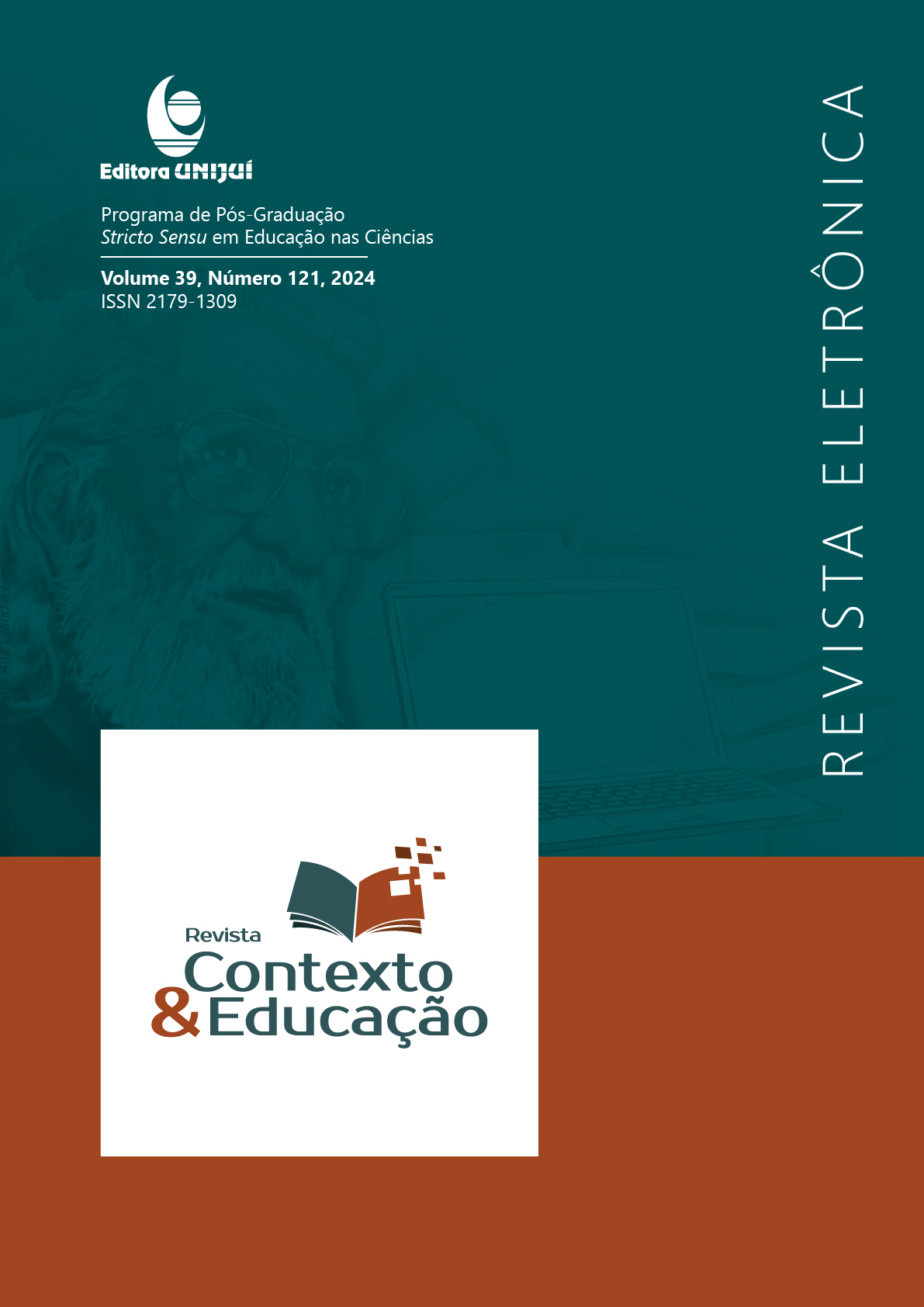Between entrepreneurial neotechnicism and teaching authority
DOI:
https://doi.org/10.21527/2179-1309.2024.121.13688Keywords:
authority, governance in education, entrepreneurial neotechnicism, Rousseau, Hannah ArendtAbstract
Entrepreneurial neotechnicism, understood as access and management of information and communication technologies in their primary aspect of socialization, added to a pragmatic reading of social activities, influence the new educational contexts.At this conjuncture, teaching authority has declined, since it is removed from the central role of the educational process, being increasingly replaced by technological devices. Also its authority declines, as the knowledge holder on educational curricula objects, as everyone has access to information in the palm of their hand, through smartphones, for example. By analyzing this theme, the present work sought to answer the following question: between the past and the future, what challenges are posed for the exercise of the educator's craft in the present? Answering this question, a bibliographic research was carried out, as main theoretical references Jean Jacques Rousseau (1995) and Hannah Arendt (2007). From the understanding of the teacher's role according to the philosophical perspectives of Rousseau and Arendt, it is opposed to the challenges faced by educators in contemporary society to exercise their social function. These philosophical perspectives allowed attributing value to the educator role in the new contexts, reaffirming the figure of the governing educator, social and pedagogical authority, responsible for human formation for common life and for a democratic society.
References
ALMEIDA, Vanessa Sievers de. Educação e liberdade em Hannah Arendt. Educação e Pesquisa, São Paulo, v. 34, n. 3, p. 465-479, set./dez. 2008.
ARENDT, Hannah. Entre o passado e o futuro. São Paulo: Perspectiva, 2007.
ARENDT, Hannah. Origens do totalitarismo. Tradução Roberto Raposo. São Paulo: Companhia das Letras, 1989.
BRASIL. Ministério da Educação. Base Nacional Comum Curricular. Brasília, 2018. Regra Geral.
BRASIL. [Constituição (1988)]. Constituição da República Federativa do Brasil. Brasília: Senado Federal, 2016.
CAMPOS, Luis Fernando Altenfelder de Arruda; LASTÓRIA, Antônio Calmon Nabuco. Semiformação e inteligência artificial no ensino. Pro-Posições, Campinas, v. 31, n. 1, p. 1-18, fev. 2020.
CRIOLO. Menino mimado. 2017. Disponível em: https://www.youtube.com/watch?v=f28vdAn5TBU. Acesso em: 23 fev. 2021.
GRUSCHKA, Andreas; ZUIN, Antônio Álvaro Soares. A invasão do smartphone na sala de aula: sobre a autoridade do professor, violência, o privado e o público no ensino. Devir Educação, Lavras, v. 4, n. 1, p. 199-221, jan./jun. 2020.
GUIMARÃES, Daniela Cavani Falcin. A afetividade na sala de aula: as atividades de ensino e suas implicações na relação sujeito-objeto. 2008. 148 f. Dissertação (Mestrado) – Universidade Estadual de Campinas, Curso de Educação, Campinas, 2008.
HORKHEIMER, Max. Eclipse da razão. São Paulo: Editora Centauro, 2002.
JAEGER, Werner. Paideia: a formação do homem grego. São Paulo: Martins Fontes, 2003.
KANT, Immanuel. Fundamentação da metafísica dos costumes. Lisboa: Edições 70, 2007.
LE GOFF, Jacques. Os intelectuais na Idade Média. Rio de Janeiro: José Olympio, 2003.
MANACORDA, Mário Alighiero. História da educação: da Antiguidade aos nossos dias. 12. ed. São Paulo: Cortez, 2006.
PEREIRA, Antônio Igo Barreto; ZUIN, Antônio Álvaro Soares. Autoridade enfraquecida, violência contra professores e trabalho pedagógico. Educar em Revista, Curitiba: FapUNIFESP, v. 35, n. 76, p. 331-351, ago. 2019. (SciELO).
ROUSSEAU, Jean Jacques. Emílio, ou, da educação. São Paulo: Martins Fontes, 1995.
ROUSSEAU, Jean Jacques. O contrato social. São Paulo: Martins Fontes, 2006.
WENDT, Cristiano Eduardo; DALBOSCO, Cláudio Almir. Iluminismo pedagógico e educação natural em Jean-Jacques Rousseau. Educação, Santa Maria, v. 37, n. 2, p. 229-240, p. 229-240, maio/ago. 2012.
ZUIN, Vânia Gomes; ZUIN, Antônio Álvaro Soares. A autoridade pedagógica diante da tecnologia algorítmica de reconhecimento facial e vigilância. Educação & Sociedade, Campinas, v. 41, p. 1-15, 2020.
Downloads
Published
How to Cite
Issue
Section
License
Copyright (c) 2024 Revista Contexto & Educação

This work is licensed under a Creative Commons Attribution 4.0 International License.
By publishing in Revista Contexto & Educação, authors agree to the following terms:
All works are published under the Creative Commons Attribution 4.0 International License (CC BY 4.0), which allows:
Sharing — to copy and redistribute the material in any medium or format;
Adaptation — to remix, transform, and build upon the material for any purpose, even commercially.
These permissions are irrevocable, provided that the following terms are respected:
Attribution — authors must be properly credited, a link to the license must be provided, and any changes made must be indicated.
No additional restrictions — no legal or technological measures may be applied that legally restrict others from doing anything the license permits.
Notices:
The license does not apply to elements that are in the public domain or covered by legal exceptions.
The license does not grant all necessary rights for specific uses (e.g., image rights, privacy, or moral rights).
The journal is not responsible for the opinions expressed in the articles, which are the sole responsibility of the authors. The Editor, with the support of the Editorial Board, reserves the right to suggest or request modifications when necessary.
Only original scientific articles presenting research results of interest that have not been previously published or simultaneously submitted to another journal with the same purpose will be accepted.
Mentions of trademarks or specific products are intended solely for identification purposes and do not imply any promotional relationship by the authors or the journal.
License Agreement (for articles published from October 2025): Authors retain the copyright to their article and grant Revista Contexto & Educação the right of first publication.


